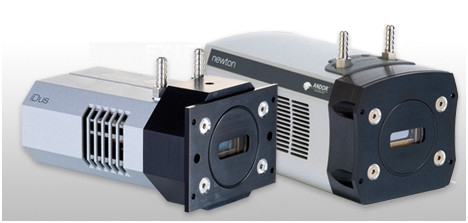
Extended QE from Dual Anti-Reflection (AR) coating

Belfast, 05 September, 2012. Andor Technology plc (Andor), a world leader in spectroscopy solutions and scientific imaging, today announces the launch of its ‘Extended Range, Dual-AR technology’ for the market-leading Newton and iDus spectroscopy CCD platforms. This new coating extends the outstanding Near-Infrared Quantum Efficiency (QE) performance of back-illuminated, deep-depletion sensors into the Visible and Ultraviolet range.
Available on the flagship Newton 920 platform and the laboratory-workhorse iDus 420 platform, the Extended Range, Dual-AR technology facilitates broadening of the QE range of back-illuminated, deep-depletion sensors through implementation of a new dual anti-reflection coating process. This new process has been developed and characterized by the sensor manufacturer e2v (Chelmsford, England). The technology also significantly improves sensitivity in the Visible and Ultraviolet regions, with ~90% or greater QE in the 500-850 nm range, whilst maintaining the standard virtual etaloning-free performance of Andor’s deep-depletion sensors in the Near-Infrared.
Antoine Varagnat, Spectroscopy Product Specialist at Andor Technology, commented “The outstanding broadband QE performance of the Dual-AR technology, combined with the superb low-etalonning performance and natural NIR sensitivity of back-illuminated deep-depletion sensors, constitute a very attractive solution for broadband luminescence / photoluminescence and absorption spectroscopy, as well as multi-laser Raman setups.”
Camera Models:
iDus 42 - High speed CCD ideal for Raman spectroscopy
Newton 920 - 1024 x 255 active pixels, TE cooled to -100 °C
